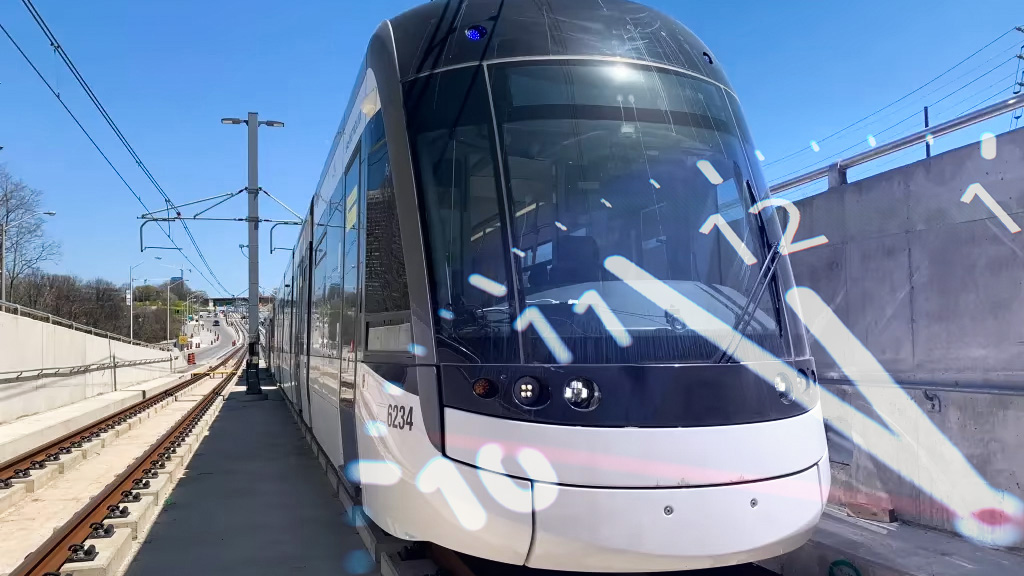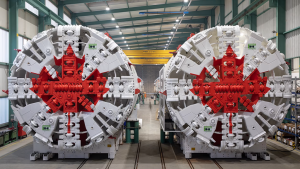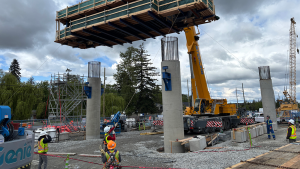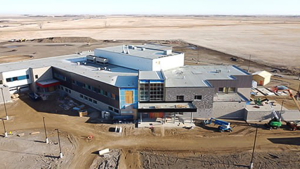Metrolinx was expected provide an opening date for the much-delayed Eglinton Crosstown LRT during a project update Sept. 27, but CEO Phil Verster said he could not commit to a solid timeline until issues with the system are rectified.
“I had every intention to predict an opening date or series or range of possible opening dates for the Eglinton Crosstown with you today, but I’ve decided against doing so based on the fact that CTS (Crosslinx Transit Solutions, the consortium building the line) is finding and rectifying issues on a week by week basis,” said Verster.
He used an example from three weeks ago when CTS informed Metrolinx that operator training had to be suspended due to availability issues with the fleet.
The project began in 2011 and has faced significant delays over the years. In August. Verster said opening dates were expected to be released by the end of summer.
“Over the last several months CTS has worked very closely with Metrolinx and have rectified and improved their schedule to complete the Eglinton Crosstown project,” Verster said.
“From the new schedule we have, we have a very good understanding of when the Eglinton Crosstown is likely to open but we are right in the middle of a high-risk testing and commissioning phase. We will announce an opening date once the high-risk testing commissioning work has been completed but not before that time. Any prediction of an opening date at this stage of the project would just be an estimate and I’m not comfortable giving that to you. When I give you a date it must be something that I believe in were not there yet.”
Verster said the completion of the project is entirely reliant on CTS meeting key milestones: construction must be completed at Eglinton and Yonge Station; the testing and commissioning phase, which is at the heart of the critical path going forward, must be completed; and all quality defects and deficiencies must be rectified to ensure a safe and reliable transit system. In addition, CTS must secure the certification of the complete design and all occupancy certificates for all of the public spaces. The training of the operators and crews is also critical.
When outlining the delays, Verster said there was approximately 12 months of delay that was caused by the initial design submissions by CTS that took longer given the complexity of the project.
“There was a further three months of delay caused by a technical defect on line one on the TTC box on the underneath side of that box,” Verster noted. “The COVID-19 pandemic also had a seven-month delay impact on the project. The fourth factor is that the current testing and commissioning phase is taking longer than expected.”
Phil Taberner, vice president of new rail infrastructure Canada, with the Crosstown project, provided a technical briefing focusing on the testing and commissioning phase. He outlined three stages of testing: the Post-Installation Checkout Test (PICO), Site Acceptance Test (SAT) and Systems Integration Testing (SIT).
“PICO, this checks that an asset has been installed, it’s been fixed and fitted as per the design in the correct location,” Taberner explained. “The site acceptance test, this checks to ensure the asset is functional, it’s powered up and it works in isolation. Then we move into the SIT. This is the most important phase. It establishes that the system in question is working as a whole and this is a lot more complex.”
For PICO, there are nearly 41,000 assets and the team is 89 per cent of its way through completing those. For SATs, there are 35,500 and 23,500 are complete. There are almost 1,000 SITs but only six per cent currently complete, Taberner explained.
“One example quite recently, as we commenced the training, we experienced issues with the way some of the signalling system worked and that now needs some software updates to get it fixed. The fixes will then need to be tested to ensure that they work properly,” he explained.
In terms of safety critical elements, the audibility of station announcements and the sound from the public address systems has to be tested, as does tunnel ventilation.
“In terms of certification, the professional of record is required to sign off on the final solutions for all of the 514 packages of work,” said Taberner. “This culminates in Metrolinx receiving 46 construction certificates and that’s certifying that the works have been designed, constructed and commissioned as per the contract requirements.”
In terms of remaining construction, the project looks pretty much complete.
“Of the 19 kilometres of surface we’ve got approximately 400 metres left to complete,” Taberner said. “The main focus now is at the Eglinton Yonge intersection, so CTS are really busy on the remaining short stretch. They are finishing off connections to the adjacent property owners, upgrading the watermains, restoring the underground utilities and then constructing the new roadway.”
Certifying facilities for safe occupancy is the next step. It involves a lot of collaboration between all the parties.
“CTS working closely with the city to secure the necessary occupancy permits,” said Taberner. “Last week CTS secured the first batch.”
Follow the author on Twitter @DCN_Angela.











Recent Comments